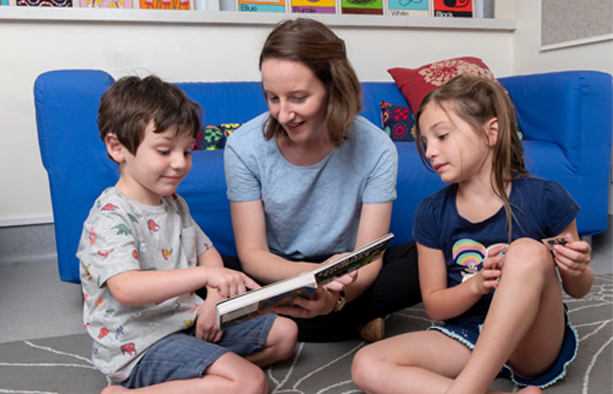Search
Showing results for "1"
Research
Piloting a self-compassion program to promote physical and psychological wellbeing in youth with T1DAmy Keely Liz Asha Finlay-Jones Bebbington Davis Parkinson BPsych(Hons), MPsych(Clinical), MHealthEcon, PhD (Clin Psych) MClinPsych/PhD MBBS FRACP

At CliniKids, we offer group or individual support for siblings of autistic children.
Research
Lung function in African infants in the Drakenstein child health study impact of lower respiratory tract illnessEarly life lower respiratory tract illness impairs lung function at 1 year, independent of baseline lung function

News & Events
Insulin pump helps to predict and prevent hyposNew research from the Children’s Diabetes Centre has found a pump that suspends insulin delivery when BGLs fall can halve the incidence of hypoglycaemia.

News & Events
New Eye ClinicThere's a new children’s clinic to revolutionise diabetic eye treatment here in WA. The clinic is a collaboration between the Lions Eye Institute

News & Events
Welcome Craig!There’s a new face in Perth Children’s Hospital’s diabetes clinic – meet consultant paediatric endocrinologist Dr Craig Taplin! We asked Craig a few questions to help to get to know him better and find out what drew him to Perth.

News & Events
Congratulations 2023 Round Two scholarship recipientsThe Rio Tinto Children’s Diabetes Centre; a JDRF Global Centre of Excellence (the Centre), announces 2023 Round 2, Honours and PhD scholarships for students dedicated to type 1 diabetes (T1D) research.

News & Events
Sisters strive to succeedAshlyn and Kayleigh have much more in common than being siblings – they both excel in their chosen sport and live with type 1 diabetes. We spoke to the sisters about juggling exercise and diabetes.

News & Events
PJs for a day to help sick kidsEleven-year-old twins Grace and Lilyana Musca had never spent time in hospital when they decided to organise a pyjama day at Hocking Primary School to raise money for sick children earlier this year.

News & Events
Diabetes clinic: We've movedWith a little over a week before outpatient clinics move from Princess Margaret Hospital (PMH) to Perth Children’s Hospital (PCH), now is the time to familiarise yourself with all the information you need to know before you make your first visit.
